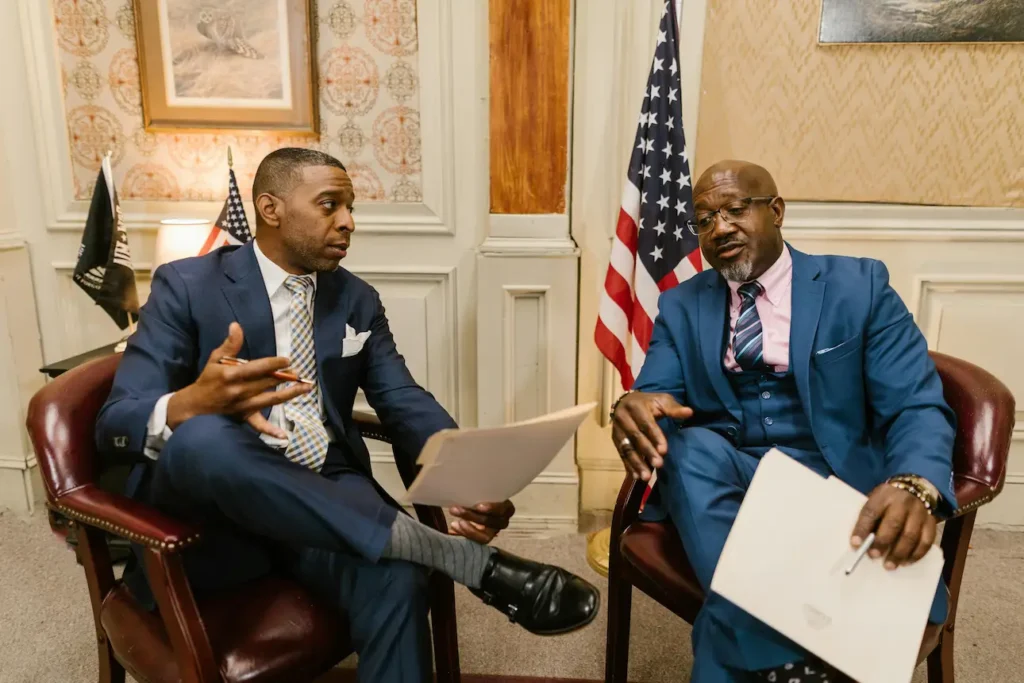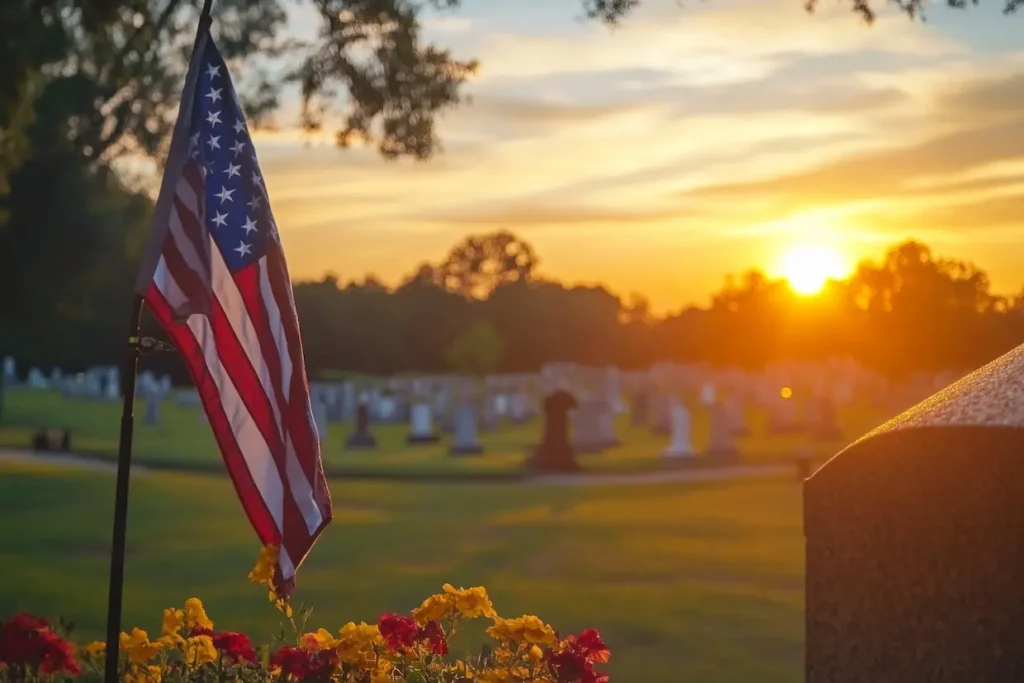Introduction: Why Veterans Need Specialized Estate Planning
Estate planning is crucial for everyone, but for veterans, it carries additional complexities and considerations that standard planning approaches often miss. As someone who has served our country, you deserve an estate plan that honors your service, protects your unique benefits, and ensures your legacy—both physical and digital—is preserved according to your wishes.
In 2025, proper estate planning for veterans must address not only traditional assets but also the growing digital footprint we all accumulate. From military benefits and memorabilia to social media accounts and digital assets, comprehensive planning provides peace of mind that your affairs will be managed according to your intentions.
This guide explores the essential elements of estate planning for veterans, including specialized will kits designed for military personnel and the increasingly important aspect of digital legacy planning. By understanding these components, you can create a robust plan that protects your loved ones and honors your service.
Understanding Unique Veteran Estate Planning Needs
Military Benefits: Protecting What You’ve Earned
Veterans have access to various benefits that require specialized knowledge to properly address in an estate plan. Understanding how these benefits transfer—or don’t—upon death is crucial:
- VA Disability Compensation: This tax-free benefit for service-connected disabilities generally doesn’t transfer to heirs. However, if your death is service-related, survivors may qualify for Dependency and Indemnity Compensation (DIC).
- VA Pension: This needs-based benefit typically ends upon death, though eligible spouses and children may receive a Survivors Pension. Be aware that large asset transfers can affect eligibility due to look-back periods.
- Survivor Benefit Plan (SBP): Military retirees can elect SBP to provide a portion of retired pay as a monthly annuity to surviving family members. This decision must be integrated with your broader estate plan.
- VA Life Insurance: Programs like Servicemembers’ Group Life Insurance (SGLI) and Veterans’ Group Life Insurance (VGLI) provide valuable death benefits. Keeping beneficiary designations current is critical, as these designations often override instructions in a will. A comprehensive estate plan must account for how these benefits interact with other assets and ensure beneficiaries understand their eligibility and how to claim benefits.
Military-Specific Assets: Preserving Your Service Legacy
Beyond financial accounts and real property, veterans often possess items of significant sentimental and historical value:
- Military medals and awards
- Uniforms and service gear
- Photographs and memorabilia
- Letters and documents from service years
A standard will might simply categorize these as “personal property,” but you may wish to make specific bequests of these items to particular family members or institutions. Consider creating a “Military Medal Last Will and Testament” specifically addressing the disposition of these treasured items.
Burial and Memorial Planning: Honoring Your Service
Veterans are eligible for special burial benefits that should be addressed in your estate plan:
- Burial in national cemeteries
- Military funeral honors
- Headstone or marker benefits
- Burial allowances
Including specific instructions regarding these wishes ensures your service is properly commemorated. Having your DD214 discharge form readily accessible is crucial for claiming these benefits.
Essential Estate Planning Documents for Veterans
While veterans have unique considerations, they require the same foundational documents as civilians, tailored to their specific situation:
Last Will and Testament
This cornerstone document outlines how your probate assets should be distributed, names an executor to manage your estate, and designates guardians for minor children or dependents. For veterans, selecting an executor familiar with military benefits and affairs is particularly important.
Trusts
A revocable living trust can be especially valuable for military families who relocate frequently. Assets held in trust avoid probate, allowing for quicker and more private distribution to beneficiaries. Trusts can also manage assets for minor children or dependents with special needs while protecting their eligibility for government benefits.
Powers of Attorney (Financial and Healthcare)
These documents appoint trusted individuals to make financial and healthcare decisions on your behalf if you become incapacitated. A durable financial power of attorney is particularly important for managing ongoing VA benefits and military retirement pay during incapacity.
Advance Healthcare Directives
Also known as a living will, this document specifies your wishes regarding medical treatment, particularly end-of-life care, if you’re unable to communicate. This ensures your autonomy over healthcare decisions and relieves family members of difficult choices during a crisis.
Beneficiary Designations
For assets like life insurance policies, retirement plans (including the Thrift Savings Plan), and payable-on-death accounts, beneficiary designations bypass probate and ensure direct transfer to named individuals. Regular review and updates are essential as these designations supersede conflicting instructions in a will.
Veteran Will Kits: A Starting Point for Military Estate Planning
What Is a Veteran Will Kit?
A Veteran Will Kit is a resource specifically marketed to veterans for creating a will, often at reduced cost or free. These kits fall under the broader category of Do-It-Yourself (DIY) estate planning options and typically include templates, questionnaires, and guidance for drafting basic legal documents without attorney assistance.
Where to Find Free or Low-Cost Will Kits for Veterans
Several resources cater specifically to the veteran community:
- Department of Veterans Affairs (VA): Offers free financial planning and online will preparation services to beneficiaries of certain VA life insurance programs, plus free legal clinics at VA centers.
- Military Legal Assistance: Active-duty military members and their dependents can often get basic wills drafted for free through their base’s Legal Support Service Section (LSSS).
- Non-Profit Organizations: Groups like the Military Pro Bono Project, American Bar Association Veterans Legal Services, National Veterans Legal Services Program, and Stateside Legal offer free legal aid to eligible veterans.
- Veteran-Specific Services: Organizations like Veterans Will Kit, MyLegacyMadeEasy Foundation for Veterans, MyEstatePlanUSA, and VFW provide free or low-cost will kits specifically for veterans.
- Online Will Makers with Veteran Offers: Some general online will services offer discounts or free periods for veterans. For example, GoodTrust has partnered with the VA for special offers, while Cake offers veteran discounts.
Pros and Cons of DIY Veteran Will Kits
Advantages:
- Cost-effective (often free or significantly cheaper than lawyers)
- Convenient (can be completed from home, on your schedule)
- Empowers you to take control of your planning
Limitations:
- May not adequately address complex situations (blended families, significant assets, businesses)
- Often lack veteran-specific nuances regarding benefits and military assets
- Legal validity depends on correctly following state-specific requirements
- Some “free” offers may include data usage concerns or transition to paid subscriptions
- Lack personalized legal advice about the implications of various decisions
The Growing Importance of Digital Legacy Planning
What Is Your Digital Footprint?
In today’s interconnected world, everyone—including veterans—accumulates a “digital legacy” that must be addressed in comprehensive estate planning. This includes:
- Email accounts
- Social media profiles
- Online banking and investment accounts
- Cryptocurrency wallets
- Cloud storage (photos, documents)
- Websites and blogs
- Online subscriptions
- Digital media libraries (music, movies, books)
- Gaming accounts and digital assets
Why Digital Legacy Planning Matters
Without proper planning, digital assets can be:
- Lost forever
- Tied up indefinitely
- Targets for identity theft
- Sources of ongoing, unnecessary costs
- Inaccessible to loved ones who need them
Proper digital legacy planning ensures that:
- Valuable memories (photos, videos) are preserved and passed on
- Financial accounts can be properly managed
- Subscriptions are canceled
- Social media accounts are handled according to your wishes
- Important documents (like a DD214) remain accessible to your executor or family
- Private information remains protected
Types of Digital Assets Veterans Should Consider
Veterans should inventory and plan for various digital assets:
Financial Digital Assets:
- Online bank accounts and investment platforms
- Cryptocurrency holdings
- PayPal, Venmo, and other payment services
- Online business assets
Personal Digital Assets:
- Email and messaging accounts
- Social media profiles
- Photos and videos stored online
- Personal documents in cloud storage
Entertainment and Subscription Digital Assets:
- Streaming services (Netflix, Spotify, etc.)
- Digital media purchases (e-books, music, movies)
- Gaming accounts and in-game purchases
- Software licenses
Professional Digital Assets:
- Websites and domains
- Blogs and online content
- Digital intellectual property
- Online business accounts
Tools and Services for Managing Your Digital Legacy
Digital Vaults and Estate Management Platforms
Several services now specialize in helping manage digital legacies:
- GoodTrust: A digital legacy platform with special offers for veterans through its VA partnership. GoodTrust secures your digital assets and ensures they’re handled according to your wishes.
- Life Estate Organizer (LEO): A secure repository where you can list, organize, and store information about digital accounts and important documents.
- LegacyNOW: A digital vault service that allows you to designate “deputies” who can gain access to your information following your specific instructions.
- Lexikin: An online platform that helps organize digital assets and includes options for charitable giving, including veteran-focused organizations.
These platforms supplement traditional estate planning documents by providing a clear roadmap to your digital assets and the credentials needed to access them.
Services Offering Digital Wills
Some providers offer specific “Digital Will” components:
- National Will Kit provides a separate Digital Will template
- Digital Wealth Media offers a package including a dedicated Digital Will document
- TruWill includes digital asset provisions in their estate planning documents
These aim to provide legal instructions for the disposition of digital property, though they work best when coordinated with traditional estate planning documents.
Integrating Digital Legacy into Your Overall Estate Plan
A comprehensive approach to digital legacy planning involves:
- Using a traditional will or trust to name a digital executor and grant them legal authority
- Creating a separate, detailed inventory of digital assets (which can be updated frequently without having to revise your entire will)
- Providing instructions for each digital asset (access, disposition, deletion)
- Securely storing access information (passwords, security questions) where your executor can find them
- Regularly updating this information as accounts change
Resources and Assistance for Veterans
Department of Veterans Affairs (VA) Resources
The VA offers valuable resources for estate planning:
- Free will services for beneficiaries of certain life insurance programs
- Free legal clinics at VA centers
- Resources on advance care planning
- Educational materials about veteran benefits
Legal Aid Societies and Non-Profit Organizations
Numerous organizations provide pro bono legal services to veterans:
- Military Pro Bono Project
- American Bar Association Veterans Legal Services
- National Veterans Legal Services Program
- Stateside Legal
These can be particularly helpful for low-income veterans or those with complex legal needs.
Online Estate Planning Services
Many online platforms offer affordable ways to create estate planning documents:
- General services like USLegalWills, TruWill, and National Will Kit
- Veteran-specific services like GoodTrust and Cake with military discounts
- Free basic will services like FreeWill, Do Your Own Will, and Fabric
When to Consult Professional Advisors
Despite the availability of DIY options, consulting with professionals is recommended for veterans with:
- Complex estates or significant assets
- Blended families
- Special needs dependents
- Complicated VA benefit situations
- Business interests
- Substantial digital assets
Ideally, seek an attorney familiar with veteran law and benefits. VA-accredited attorneys can assist with VA matters, but you may need a separate estate planning attorney for overall planning. Financial advisors specializing in military personnel can also provide valuable guidance on integrating financial planning with estate goals.
Conclusion: Securing Your Legacy and Providing Peace of Mind
Estate planning for veterans represents more than just legal documents—it’s about honoring your service by ensuring your wishes are respected and your loved ones are cared for. By addressing both physical and digital legacies, you create a complete roadmap for the future, offering peace of mind to yourself and easing the burden on your family during a difficult time.
Whether you utilize a veteran will kit, a comprehensive online service, or seek guidance from legal professionals, the goal remains the same: to create a clear, legally sound plan that protects your assets, provides for your family, and manages your affairs according to your intentions.
Taking these proactive steps today is the ultimate act of preparedness, reflecting the discipline and foresight often instilled by military service. Just as you served your country with dedication, a comprehensive estate plan serves your family by protecting what matters most.
Don’t wait to secure your legacy. Start your estate planning journey today with the tools and resources available specifically for veterans. Your family—and your peace of mind—are worth the effort.


